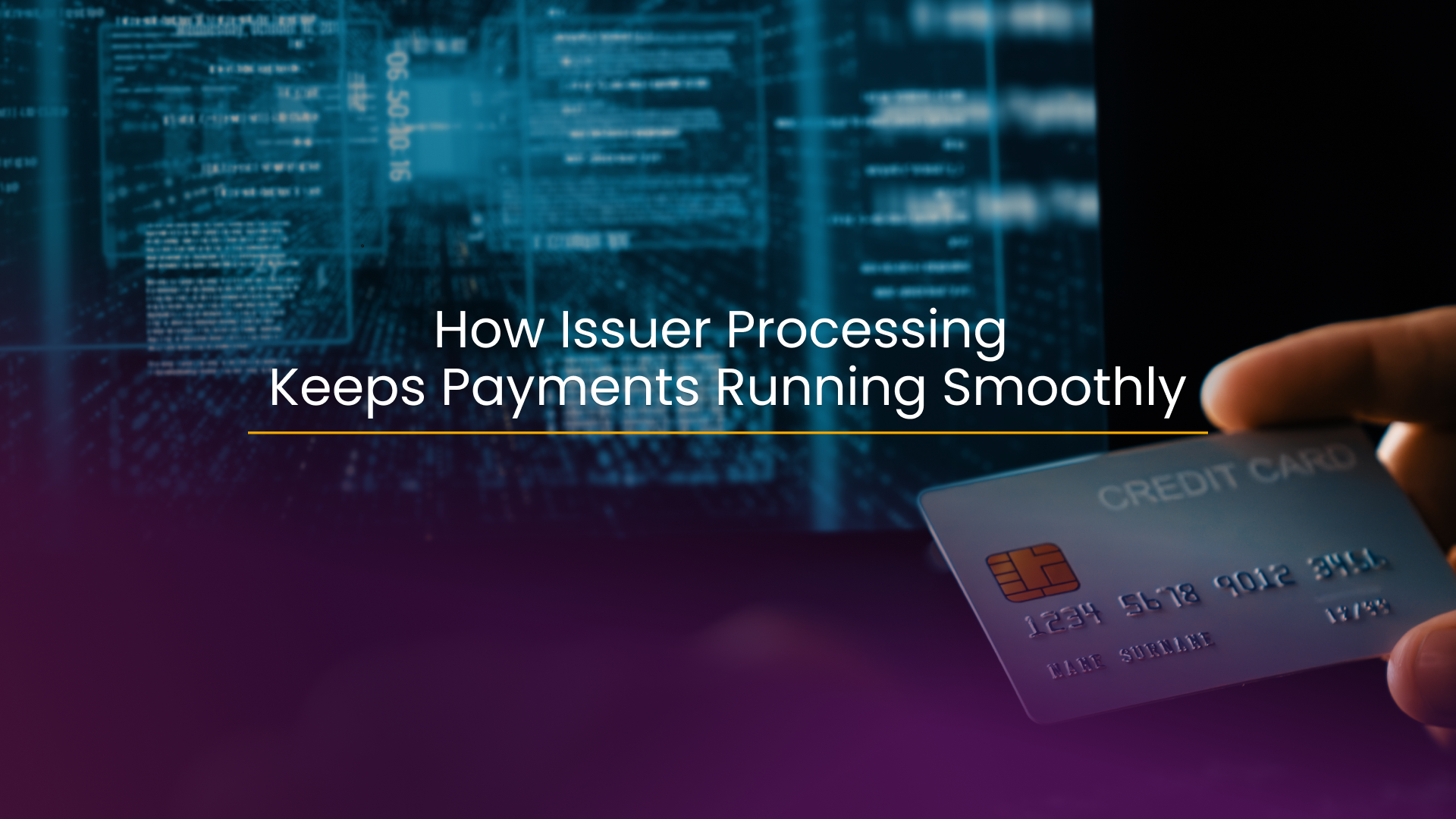How issuer processing keeps payments running smoothly
Every time you make a payment, whether it’s with a credit card, digital wallet or cryptocurrency, there’s a lot happening behind the scenes to ensure everything goes off without a hitch. Alex Kelly, Tribe Payments VP, Product, delves deep into the world of issuer processing - Tribe's bread and butter - and shares everything you need to know.
Issuer processing is at the heart of this system, ensuring that transactions are authorised, funds are moved securely, and everything complies with industry regulations.
As new payment methods become more common and consumer expectations rise, understanding how issuer processing works is particularly useful for maintaining reliable and secure payment systems.
So, what is issuer processing?
Issuer processing connects financial institutions like banks, fintechs or payment companies with payment networks to ensure that when you make a purchase, everything happens without delay. The issuer processor is responsible for authorising the transaction, potentially holding the customer ledger and ensuring the process remains secure.
Here’s a breakdown of how it works:
- Authorising payments -The issuer processor communicates with the bank or financial institution that issued the customer’s payment method to verify whether the transaction can go through. It checks whether the customer has sufficient funds, validates the transaction against fraud detection systems, and ensures that everything complies with regulations, such as fraud checks and anti-money laundering (AML) rules. If any red flags are detected, the transaction will be declined. They also communicate with the client (banks, fintechs, payment companies) to get the final decision from them.
- Managing customer ledgers - Once the payment is authorised, the issuer processor ringfences the funds on the customer’s account ensuring it cannot be spent elsewhere. At the point of clearing, funds are formally deducted from the customer account and the settlement report ensures the client has a clear reconciliation process for managing the movement of money to the payment network like Visa or Mastercard, or via a faster settlement service like real-time payments. The issuer processor ensures that the right amount of money moves from the right accounts, and in some cases, it will also manage the reconciliation of payments across different systems.
- Ensuring security: Security is central to issuer processing. The processor encrypts transaction data to ensure sensitive information, like card details and personal data, stays protected during transmission. It also employs tokenisation - replacing sensitive data with a unique identifier that cannot be used by fraudsters - to reduce the risk of data breaches. Additionally, issuer processors comply with PCI-DSS (Payment Card Industry Data Security Standard) to maintain high-security standards across the payment system.
While these processes happen in real time and may seem effortless to consumers, issuer processors are handling complex tasks to ensure that everything runs securely and efficiently.
Why issuer processing matters
With the growth of everything from mobile payments and contactless cards to cryptocurrencies and BNPL services, issuer processing has become a key player in keeping transactions smooth. It’s about getting the payment through and ensuring the funds move quickly, securely and in line with all necessary regulations.
As businesses expand their payment options, whether through app-based wallets, subscription services or flexible payment plans, issuer processing must keep up. Consumers expect fast, easy payments, and the issuer processor ensures that payments, whether made with a phone or a tap of a card, are authorised, secured and processed without a hitch.
Offering more payment options is a natural evolution for many businesses, but it comes with its own set of challenges. For example, cryptocurrency exchanges that provide customers the ability to buy and sell digital currencies need issuer processors to help bridge the gap between crypto and traditional payments. The smoother the conversion between the two, the better the customer experience. By integrating issuer processing, businesses can make it easier for customers to convert crypto to fiat and complete their purchases without delays or unnecessary friction.
As the market in which payment businesses operate in evolves and matures, the need for the issuer processor to be adaptable to these use cases (and others) is essential, to ensure they can compete and differentiate in highly competitive verticals.
The processor not only authorises transactions and manages ledgers but also ensures compliance with changing regulations. Issuer processing is the reason we can pay with a tap or swipe and feel confident that our money is going to the right place.
What’s next for issuer processing?
With innovations like biometric payments, voice-activated transactions, and even payments made through wearable devices, issuer processors will need to keep up with these emerging technologies.
In the future, we might see payments become even more integrated into daily life, with issuer processors enabling automatic payments for everything from bus fares to coffee orders, all while ensuring that security stays tight, and customers remain protected.
Real-time payments, where money is transferred immediately, have set a new standard. Consumers expect their payments to be instant, and that means issuer processors need to work even faster to make sure transactions are authorised and settled in real time.
But speed doesn’t mean cutting corners on security; and the payments space is no stranger to the constant technological cat-and-mouse battle between fraud and fraudsters. As fraud becomes more sophisticated, even more advanced tools to spot and prevent suspicious transactions in real time will be required, ensuring that your money and personal information are always protected.
At the end of the day, issuer processing is what makes modern payments possible. It’s the behind-the-scenes hero that makes sure payments happen securely and efficiently - no matter how you pay.











.png?width=137&height=90&name=Payments%20Awards%20(1).png)


.png)